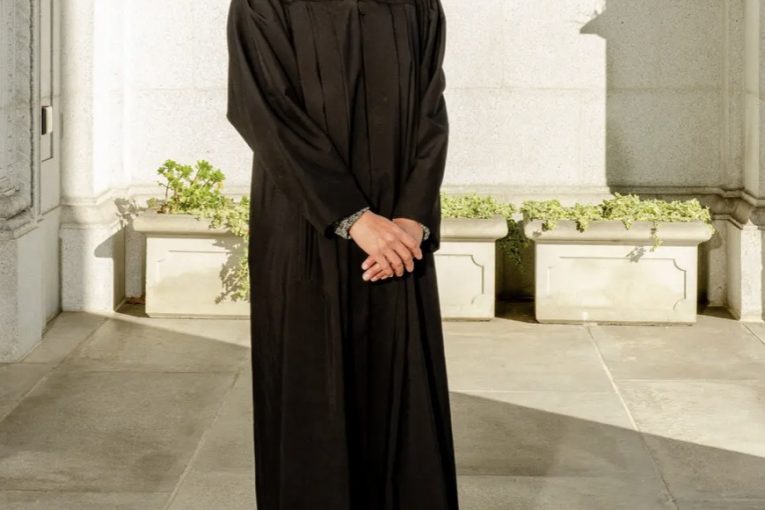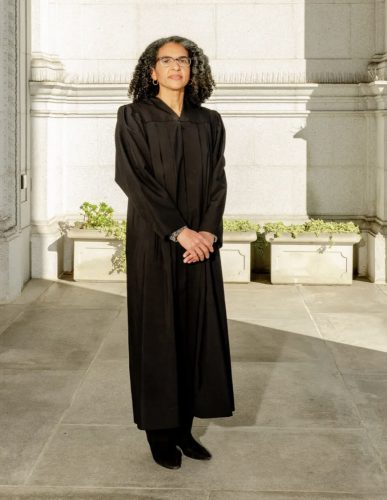

Cayce Clifford for The New York Times
By Nikita Bondale
WASHINGTON DC— 1981. That is the year Sandra Day O’ Connor made history by being the first female justice appointed to the Supreme Court. 2021, four decades later, the first woman of color to be vice president, Kamala Harris, was sworn in by the first woman of color on the Supreme Court, Justice Sonia Sotomayor.
Each decade that passes, the federal government becomes more diverse and the country takes steps towards having a government that is more representative than ever before. However, a key question continues to arise. Why has there never been an African-American woman on the Supreme Court?
Unlike other parts of the government, the Supreme Court Justices are appointed for life, making each of them very vital to the process and making the Court as a whole more static. Therefore, when Justice Steven Breyer announced his retirement after 27 years on the Supreme Court, many began to excitedly pitch names for the newest person to be bestowed that honor.
Earlier this week, President Biden finalized his shortlist for the new Supreme Court nominee. That list includes three amazing women: Ketanji Brown Jackson, “a recent appointee to the US Court of Appeals for the District of Columbia Circuit;” J. Michelle Childs, “a federal judge in South Carolina” also nominated to serve on the D.C. Court of Appeals; and Leondra Kruger, “a California Supreme Court Judge” who would be the first in 40 years to go from a state court to the Supreme Court.
As stated by the Guardian, Jackson is seen as the frontrunner and has a “proven record of bipartisan support.” Though viewed as a relative underdog—because she is the youngest of the three—Kruger’s accomplishments, vision, and drive make her the ideal candidate to be the newest appointee to the Supreme Court. This is important because younger justices tend to have insight into modern-day issues, such as those involving technology for instance, which older justices may not.
Kruger graduated magna cum laude from Harvard University and later became the first African-American woman to be editor-in-chief at the Yale Daily News, her law school’s world-renowned newspaper.
Besides her educational accomplishments, she has had many professional successes as well. As described in a CNN article, Kruger “clerked at the U.S. Supreme Court and later represented the U.S. government in a dozen cases before that court.” Her resounding success allowed her to earn the Attorney General’s Award for Exceptional Service and she began serving in California’s highest court.
Not only does her impressive resume fit the mold of a prospective Supreme Court Justice, but her personality and behaviors do as well. One of the earlier proponents of the Judicial Branch was Alexander Hamilton. He, along with several others, authored the “Federalist Papers” to support the ratification of the Constitution.
Federalist Paper 78 specifically was an essay regarding the functioning of the Supreme Court. In the essay, Hamilton describes how the “complete independence of the courts of justice is peculiarly essential in a limited Constitution.” By this, Hamilton emphasizes how Justices are meant to be insulated from public opinion, and that they are not meant to represent their beliefs or their parties, but simply be a representative of the Constitution.
Leondra Kruger fits this bill. Greg Wolff, a former California Supreme Court staff attorney who worked alongside Kruger, describes her as being a “highly intelligent, thoughtful, hardworking person who treats each person, no matter their station in life, with dignity and respect.” He went on to state how she is highly professional and ensures that her opinions do not conflict with the job at hand.
These qualities she has such as integrity, honesty, and a hardworking nature allow for constituents to feel better about their government representatives. Kruger’s values allow everyday people to feel more connected to the judicial process by seeing a Supreme Court justice who holds similar morals, values, and is a positive role model.
Ever since the “American Experiment” began in 1776, the country has gone through its fair share of firsts. First war. First election. First court case. And now, the first African-American woman to be elected to the U.S. Supreme Court. That woman, based on the intent of the founders and the accomplishments she has made in the present, should be California’s Leondra Kruger.





